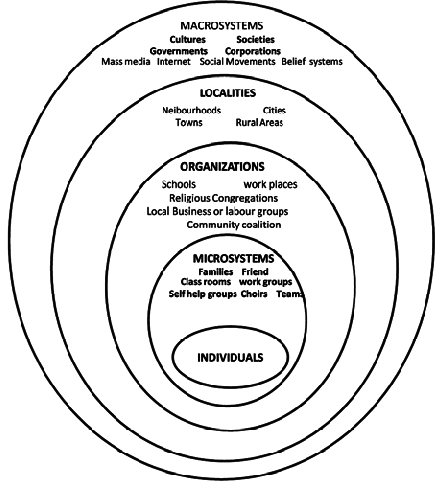List Of Contents
- 1 Introduction
- 2 Understanding Ecological Systems
- 3 Methodologies in Ecological Analysis
- 4 Key Areas of Ecological Analysis
- 5 The Role of Ecological Analysis in Environmental Management
- 6 Challenges in Ecological Analysis
- 7 Ethical Considerations in Ecology
- 8 Advances in Ecological Analysis
- 9 The Future of Ecological Analysis
- 10 Conclusion
- 11 Author
Ecological analysis is a crucial scientific practice for understanding and managing the complex interactions within environmental systems. In this 1000-word article, we delve into the methodologies and importance of ecological analysis, exploring how it helps us comprehend the intricacies of ecosystems and address various environmental challenges.
Introduction
Ecology, as a scientific discipline, seeks to understand the relationships between organisms and their environments. Ecological analysis involves studying these interactions in detail, focusing on the dynamics of populations, communities, and ecosystems. This field is vital in addressing environmental issues and developing sustainable solutions for the preservation of biodiversity and ecosystem health.
Understanding Ecological Systems
Components of Ecosystems
Ecological systems comprise biotic (living) and abiotic (non-living) components. Biotic components include plants, animals, and microorganisms, while abiotic components encompass elements like climate, soil, and water.
The Complexity of Ecological Interactions
Ecological systems are characterized by intricate interactions, such as predator-prey relationships, competition for resources, and symbiotic partnerships. Understanding these interactions is essential for comprehending ecosystem dynamics.
Methodologies in Ecological Analysis
Field Observations and Surveys
Fieldwork is fundamental in ecology, involving direct observations and surveys in natural settings. This approach helps gather data on species behavior, population sizes, and environmental conditions.
Experimental Ecology
Experimental methods involve manipulating variables in controlled or semi-controlled settings. This approach is used to test hypotheses about ecological interactions and processes.
Modeling and Simulation
Ecological modeling uses mathematical and computational techniques to simulate ecological processes and predict changes in ecosystems. Models can range from simple conceptual models to complex computer simulations.
Remote Sensing and GIS
Remote sensing technology and Geographic Information Systems (GIS) are used to collect and analyze spatial data on landscapes and ecosystems. These tools are invaluable for large-scale ecological studies, such as tracking deforestation or the spread of invasive species.
Key Areas of Ecological Analysis
Population Ecology
Population ecology focuses on the study of populations of individual species, examining factors like population size, density, and growth patterns. It also explores how populations interact with their environments.
Community Ecology
Community ecology studies the interactions between different species within a community. It looks at how these interactions shape the structure and function of communities.
Ecosystem Ecology
Ecosystem ecology examines ecosystems as a whole, considering both biotic and abiotic components. It studies processes like nutrient cycling, energy flow, and ecosystem productivity.
The Role of Ecological Analysis in Environmental Management
Conservation Biology
Ecological analysis is crucial in conservation biology. It helps identify species and ecosystems at risk, understand the causes of biodiversity loss, and develop conservation strategies.
Sustainable Resource Management
In resource management, ecological analysis informs sustainable practices for forestry, fisheries, agriculture, and water use. It ensures that resource exploitation does not adversely affect ecosystem health.
Climate Change Research
Ecologists study the impacts of climate change on ecosystems, such as shifts in species distributions and changes in phenology (the timing of natural events). This research is critical for developing adaptation and mitigation strategies.
Challenges in Ecological Analysis
Complexity and Variability
Ecosystems are complex and often exhibit high variability. This makes it challenging to isolate specific factors and draw definitive conclusions about ecological processes.
Scale of Study
Ecological phenomena can occur at different scales, from local to global. Researchers must choose the appropriate scale for their study, which can impact the applicability of their findings.
Long-Term Studies
Many ecological processes unfold over long periods. Conducting long-term studies is essential for understanding these processes but can be resource-intensive and logistically challenging.
Ethical Considerations in Ecology
Impact on Ecosystems
Ecologists must consider the potential impacts of their research on ecosystems. This includes minimizing disturbance to wildlife and habitats during field studies.
Data Sharing and Collaboration
Ethical ecological research involves sharing data and findings with the broader scientific community and collaborating with other researchers and stakeholders.
Advances in Ecological Analysis
Technological Innovations
Advancements in technology, such as drone surveillance, advanced sensors, and data analytics tools, are enhancing the capabilities of ecological research.
Interdisciplinary Approaches
Ecology is increasingly interdisciplinary, integrating insights from fields like genetics, climatology, and social sciences. This holistic approach is crucial for addressing complex environmental challenges.
Citizen Science
The involvement of the public in ecological research, known as citizen science, is expanding. This approach not only contributes valuable data but also fosters public engagement with environmental issues.
The Future of Ecological Analysis
Addressing Global Environmental Challenges
As the world faces pressing environmental challenges like biodiversity loss and climate change, the role of ecological analysis becomes ever more critical. It will be central in informing policy decisions and management strategies.
Emphasis on Restoration Ecology
With the increasing degradation of ecosystems, restoration ecology is gaining importance. This field focuses on restoring disturbed or damaged ecosystems to their natural state.
Integrating Technology and Ecology
The future of ecological analysis lies in the integration of emerging technologies and innovative research methodologies. This will enable more precise and comprehensive studies of ecosystems.
Conclusion
Ecological analysis is indispensable for understanding the complexities of the natural world and addressing environmental challenges. By studying the interactions within ecosystems, ecologists can provide insights essential for conservation efforts, sustainable resource management, and climate change mitigation. As ecological research continues to evolve, integrating new technologies and interdisciplinary approaches, it will play a pivotal role in guiding our actions towards a more sustainable and environmentally conscious future. The study of ecological systems not only deepens our understanding of nature but also underscores our responsibility to protect and preserve the diverse life forms that share our danatoto planet.

